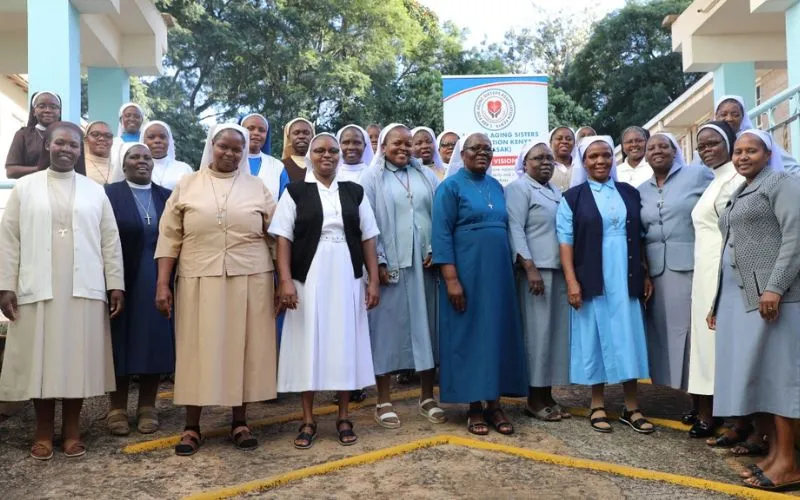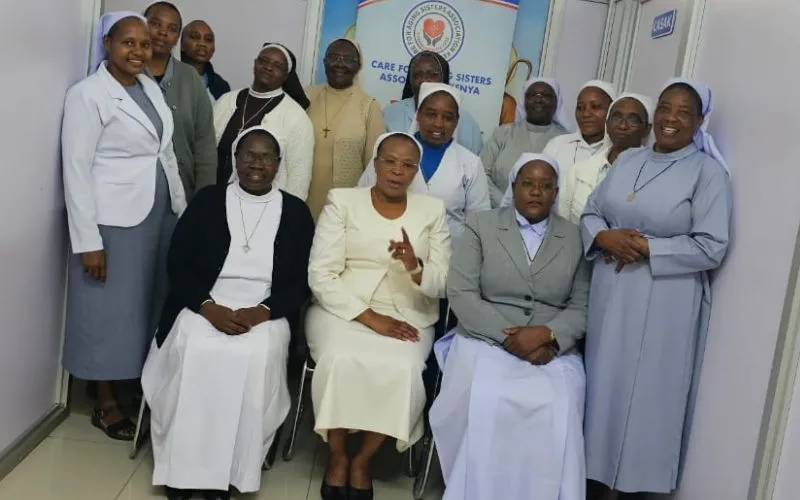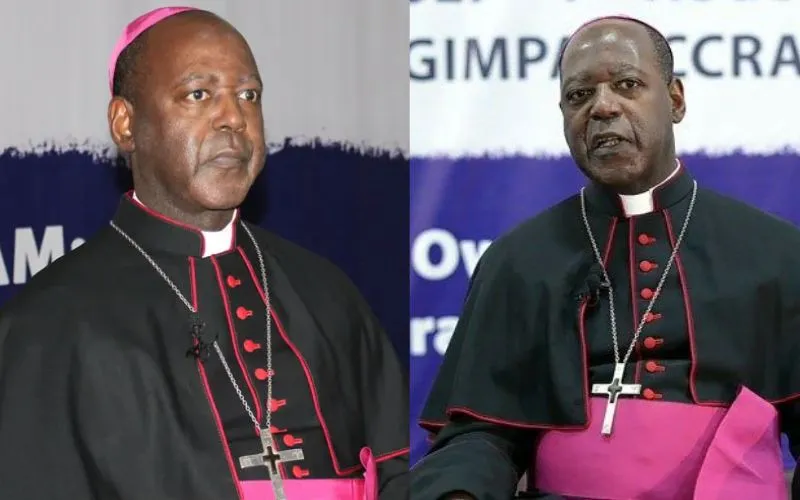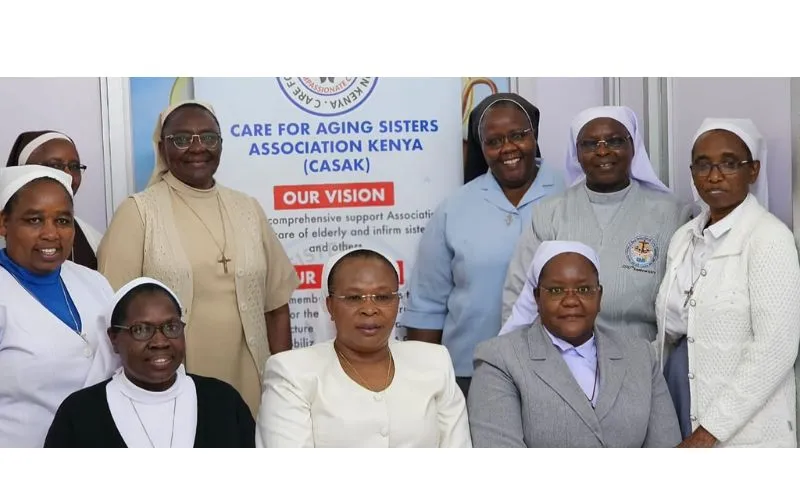Sr. Wamuyu clarified that though CASAK envisions a home for the elderly, where AOSK members pool resources to take care of their members, the association would still advocate for Sisters to stay in the communities as much as possible, “to get the care that their communities can give them, until they can’t get the care anymore.”
“If the Congregation has only one Sister, we’ll be looking into the possibility of the Congregation sharing resources with other Congregations to take care of their elderly members,” she said.
The Nairobi-based FES member told ACI Africa that the April 10 meeting has been organized to plan for future activities of CASAK.
“In 10 years, I will be 70 years old. Many other Sisters will be old. We are asking ourselves where we will be when we are old,” Sr. Wamuyu said.
According to her, old age is a reality that is neither spoken about nor budgeted for.
(Story continues below)
“When you are young, old age is far from reality. But a time has come when we must ask ourselves whether we really have Sisters among ourselves who are ready to take care of the elderly,” CASAK Executive Director said.
She added, “We have also realized that we don’t not have professionals among us to take care of these elderly. We may have doctors and nurses among us but that doesn’t make them caregivers for the elderly.”
In the April 8 interview with ACI Africa, Sr. Wamuyu expressed concern that gerontology is not offered in Kenyan institutions of higher learning, despite the high demand for professional caregivers for the elderly in the country.
“I saw one caregiving programme provided by one top university here in Kenya. But it has no single enrollment,” Sr. Wamuyu said.
She continued, “Caregiving doesn’t seem to be a priority in Kenya. It isn’t prioritized as a career through which one can earn a living and get fulfillment. We need to find ways to make it a desirable profession. We need to have a change of the mindset of young the people who shun the course, thinking that it is about being a nanny.”
Also noticeable is the dearth of information in women ICLSA in Kenya concerning the wellbeing of their members, the immediate former AOSK Secretary General said, and explained that the data upon which CASAK was formed is European.
 Credit: CASAK
Credit: CASAK
She challenged the faithful to acknowledge the role that Catholic Sisters play in improving the quality of services offered in Catholic schools and institutions of higher learning, and to take care of their needs when they start aging.
“We have done so much in hospitals, in schools, in our pastoral work, but we have not saved anything for old age,” Sr. Wamuyu said, and added, “Members of the faithful should start asking themselves what happens to Sisters once they disappear from the public because of old age and illnesses.”
For the April 10 meeting, CASAK has invited various stakeholders who, Sr. Wamuyu says, have the expertise to advise the association on future investments for the care of the elderly.
“Care for the elderly is very expensive. Some of the stakeholders we have invited have worked on Sisters’ projects before and can advise us on the sustainability of our caregiving project. They are all volunteers who desire the Catholic Sisters,” the CASAK Executive Director said.
Agnes Aineah is a Kenyan journalist with a background in digital and newspaper reporting. She holds a Master of Arts in Digital Journalism from the Aga Khan University, Graduate School of Media and Communications and a Bachelor's Degree in Linguistics, Media and Communications from Kenya's Moi University. Agnes currently serves as a journalist for ACI Africa.




 CASAK Board and staff. Credit: CASAK
CASAK Board and staff. Credit: CASAK
 CASAK Board. Credit: CASAK
CASAK Board. Credit: CASAK Credit: CASAK
Credit: CASAK


